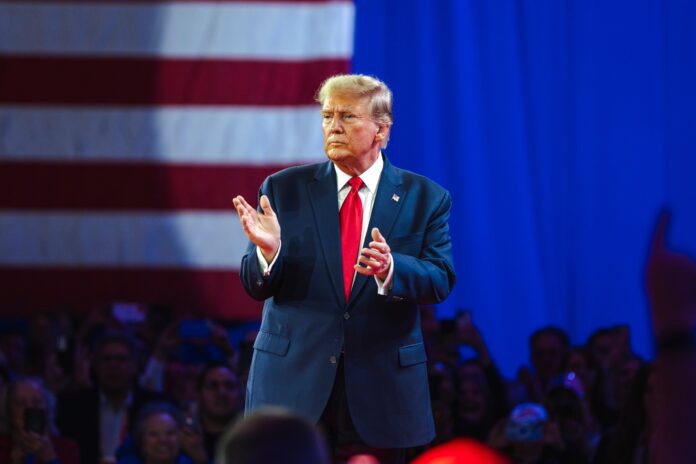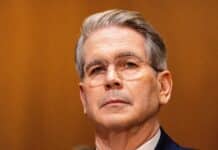
(Daily Caller News Foundation) — A recent poll found that voters say they would be more likely to support former President Donald Trump if Republican South Carolina Sen. Tim Scott is on the ticket in 2024.
![]()
Scott leads the field of possible vice presidential contenders, including former Republican presidential candidate Vivek Ramaswamy, Republican Florida Sen. Marco Rubio, Republican Rep. Elise Stefanik of New York and former independent Rep. Tulsi Gabbard of Hawaii, according to a recent Harvard-Harris Poll. Scott drew 25% among voters who said they were more likely to vote for Trump if he was on the ballot, followed by 23% for Ramaswamy and 22% for Rubio.
Stefanik polled the lowest across all voters with only 13% reporting they would likely vote for a Trump-Stefanik ticket, while Gabbard received 19% support. Also mentioned as possible picks to be Trump’s running mate includes Republican Gov. Kristi Noem of South Dakota, who received 16% support of those surveyed, and Republican Gov. Doug Burgum was favored by 15% of those polled.
Impact of various VP choices on the electorate (More likely to vote Trump minus less likely):
Scott: +6
Vivek: —
Rubio: —
Gabbard: -1
Noem: -7
Burgum: -6
Stefanik: -11 pic.twitter.com/GbdLf7miB2— Logan Dobson (@LoganDobson) May 20, 2024
Trump previously named Scott as a potential vice presidential pick on a Fox News town hall in February. Republican Sen. J.D. Vance of Ohio and Republican Gov. Ron DeSantis of Florida have also been mentioned as possible selections, but their possible candidacies were not surveyed in this portion of the poll.
Trump’s base appears to be more consolidated than President Joe Biden’s, with 78% of Republican voters saying they have decided who to vote for, while 70% of Democrats say they have already made their choice. Across all voters, seven out of ten have decided who they will vote for, but 44% of independents remain undecided.
Polling shows Trump leading in six of the seven swing states, most recently in Nevada, North Carolina, and Pennsylvania. Trump is also leading in Arizona, Georgia and Michigan, according to RealClearPolitics.










